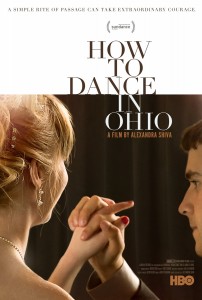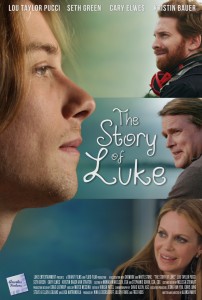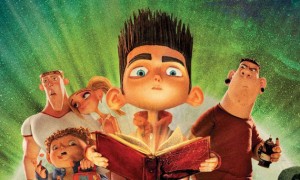So you’ve watched all the autism movies and documentaries and found that some were hard to watch, others you could relate to quite well and some were even enlightening but I can guarantee that you’ve never seen one as powerful as How To Dance In Ohio.
Synopsis
How To Dance In Ohio is a documentary by Alexandra Shiva that follows a group of young autistic adults as they prepare for their first formal dance. They must learn how to ask each other out, how to handle rejection, how to hold a conversation, how to dance and in some cases… share that first kiss. More specifically the film focuses in on 3 young woman ranging from 16 years old to 22 years old as they navigate family life, moving on from their family and having a job.
Release Date
October 26, 2015 on HBO
Review
You get a sense that this film is going in all the right directions as soon as the film starts when the first scene opens with actual autistic people talking to you and expressing to you how they feel. There are no actors, there is no narrator, there is no big production made about what we’re about to see. There is simply a young woman, with autism, in front of the camera, saying “We like to socialize, but it’s just, we don’t know how,” and from that moment, you know you are watching the right movie.
As the viewer, you get to sort of ride along with this group of autistic young adults over the course of 12 weeks as they prepare for what is quite literally, one of the scariest events possible… a formal dance. I know that most people would chuckle at that or think it’s silly because the average person tends to look forward to social functions like that. This film not only explains but shows you very clearly why it is as scary as it is for those many people with autism. While other films with actors and writers try to create the perfect situation or accurately portray what may happen, How To Dance In Ohio has only very real people in very real situations dealing with them as best they can.
The real strength that How To Dance In Ohio has is it’s ability to capture very real moments as they happen, as though there was no camera there at all. When you see these people cry, or behave in some awkward way or when they laugh, you feel how genuine that is. You suddenly realize what all those other autism films have been missing all along. The actors in autism movies have incredible talent and did great work in their respective films but no one can ever truly understand or convey what it’s like to be autistic quite like an actual autistic can.
It isn’t until you’re watching a documentary like How To Dance In Ohio that it hits you; you will never know what it’s like to be autistic without talking to an autistic.
I fear that the only downfall for this film and any film or book that does such a great job of depicting the struggles (and triumphs) of autism is that those who do not have autism directly affecting their lives won’t give it a chance until they have to. How To Dance In Ohio is such a great documentary but it’s also a very powerful tool for autism awareness, showing people what autism is really like in a way that not many other films have been able to. In one scene, Marideth, a 16 year old young lady with autism is talking with her family at the dinner table and all seems great until she just gets up and walks away. She’s still a part of the conversation and everyone is still happy but she’s just up and gone. To the average person, that would seem odd or maybe even rude. But to an autistic or someone close to someone with autism, we totally understand that!
There are so many key moments in How To Dance In Ohio where I feel that most people wouldn’t even notice but as an adult with autism myself as well as the parent of a child with autism, I find myself feeling this very strong bond between myself and those on the screen in those moments. They’re so tiny and likely insignificant to anyone else but I just know that those already within the autism community are going to pick up on them in the biggest way and go back and watch them again because they touch them so deeply. Powerful moments likes these can’t be scripted nor prepared for, they are real moments that can only happen spontaneously from someone that is living in that moment and Alexandra Shiva captures them so perfectly in How To Dance In Ohio.
As I watched, I messaged friends that are also parents of children with autism, telling them that this is going to be a hard film for some people to watch. I relayed some of the things that the autistics within the film would say, such as “Cartoons don’t judge you like people do,” and we all felt our hearts sink together. We know that feeling.
As hard as How To Dance In Ohio is though, it’s also incredibly wonderful to watch with so many moments of laughter, triumph and of course, tears. None of it scripted, none of it prepared for or anticipated.
If I could make every person on Earth who has no prior experience with autism sit down and watch any one movie to understand what my own life with autism has been like, How To Dance In Ohio would be that film.
- Official Website: http://www.howtodanceinohio.com/
- IMDB: http://www.imdb.com/title/tt4135896/
- Facebook: https://www.facebook.com/howtodanceinohio
- Twitter: https://twitter.com/HowToDanceInOh












